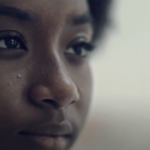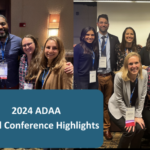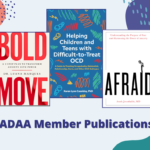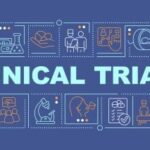The alarming state of youth mental health is raising urgent questions worldwide. A quick search reveals a staggering number of recent articles from reputable sources like the World Health Organization, UNICEF, the New York Times, and the World Economic Forum all confirming that we are indeed facing a crisis. This is further echoed by news outlets such as the Australian Broadcasting Corporation. The sheer volume of information available on this topic highlights the pressing need for immediate action and sustained attention to this critical issue affecting our youth.
The upcoming ADAA 2025 Conference in Las Vegas (April 3 – 5) is poised to shine a spotlight on youth mental health, emphasizing that there has never been a more critical time to focus on this topic. The Anxiety and Depression Association of America (ADAA), alongside its dedicated members, supporters, and contributors, has been deeply committed to enhancing youth mental health for decades. They recognize the importance of early intervention and treatment for mental health conditions, particularly in light of the current challenges within the mental health landscape. The urgency of this conference cannot be overstated.
ADAA recently engaged in discussions with the conference co-chairs regarding the theme, Navigating the Youth Mental Health Crisis: From Science to Solutions. They shared insights about their roles in preparing for this significant event, their aspirations for its impact, and their ongoing efforts to advance mental health care and treatments for children and adolescents.
Co-Chairs: Uniting Expertise to Elevate Youth Mental Health Discussions
In conversations with Kate D. Fitzgerald, MD and Erika E. Forbes, PhD, it’s evident that their partnership as co-chairs is a harmonious blend of passion and expertise. Their collaboration is set to enhance the ADAA conference experience. Both co-chairs share a profound respect for each other’s commitment to youth mental health, with backgrounds as clinicians and researchers that align perfectly with ADAA’s mission and conference objectives.
Dr. Fitzgerald, who has been a part of ADAA’s conferences for over 20 years and is a CDLP award recipient, emphasizes how ADAA effectively bridges the gap between evidence-based research and clinical practice. She is particularly driven to lead this conference focusing on youth mental health alongside Dr. Forbes.
“I observe extensive waitlists for clinic appointments and recognize that while certain treatments are considered gold standards, they aren’t universally effective. This necessitates the exploration of alternative options for our young patients,” Dr. Fitzgerald noted. “My objective as a clinician is to enhance services, treatments, and outcomes for youth grappling with conditions like anxiety, OCD, and depression. This conference facilitates collaboration among clinicians and researchers to discuss innovative strategies and approaches to better assist these young individuals.”
Dr. Forbes, a researcher at the University of Pittsburgh focusing on depression, and a clinical psychologist, resonates with Dr. Fitzgerald’s sentiments.
“ADAA is refreshing, as it adeptly balances clinical and research aspects,” Dr. Forbes stated. “While other conferences may touch on similar subjects, ADAA uniquely integrates them, fostering collaborations among MDs, PhDs, MSWs, and professionals from various domains dedicated to studying and treating mental health disorders.”
Moreover, Dr. Forbes highlights the invaluable opportunities the ADAA conference provides for attendees to network with experts from complementary fields, a feature that many other conferences lack.
Empowering Youth Mental Health Through Conference Insights
Drs. Fitzgerald and Forbes are keenly aware of the challenges ahead as they prepare to chair the conference while addressing the multifaceted issues impacting youth mental health today. Their ambition and determination position them well for this important endeavor, ensuring that the conference’s agenda is in capable hands.
Uniting research and clinical expertise is the cornerstone of the ADAA conference, according to Dr. Forbes. Both members and attendees share common goals, yet their diverse backgrounds and networks present unique challenges. The co-chairs have received numerous suggestions from researchers and clinicians regarding speakers, sessions, and topics of interest. However, this diversity also presents advantages, as it broadens the selection of potential speakers and subjects, resulting in a conference that seamlessly integrates clinical and research priorities.
A primary focus of the conference is the urgent need to address youth mental health challenges without delay. The co-chairs addressed the alarming rise in depression rates, particularly among adolescent girls, the increasing incidence of suicidality among young people, and the heightened levels of anxiety and depression. They emphasized the critical importance of early identification and intervention to avert chronic mental health disorders.
“Identifying which youth are at the highest risk opens doors for proactive measures to guide them towards healthier paths. Certain developmental stages present optimal opportunities for intervention,” the co-chairs remarked. “As youth continue to grow and develop, understanding the implications of worsening conditions post-COVID-19 becomes crucial. Different age groups have faced varying challenges during the pandemic, impacting their mental health trajectories.”
Both Drs. Fitzgerald and Forbes express optimism about engaging with younger generations, who generally exhibit openness regarding mental health issues.
“It’s invigorating to explore mental health treatments tailored for young people,” Dr. Forbes shared. “This generation recognizes the significance of mental health and is less likely to view it through a stigmatizing lens, making them more inclined to seek assistance and treatment. We have a remarkable opportunity to tackle the challenges they face today.”
Unlocking Opportunities: Why You Should Attend the Conference
Las Vegas is an exciting backdrop for this conference! The co-chairs have even expressed enthusiasm about the potential for fun, driven partly by its accessibility for west coast participants. They are hopeful that the location will draw new attendees from Nevada and nearby states who may not have previously had the chance to participate in an ADAA conference.
Drs. Fitzgerald and Forbes highlight several compelling reasons to attend the conference: researchers will gain fresh perspectives to enhance their work; clinicians will acquire new techniques to implement in their practice; and both groups will develop greater confidence in addressing their knowledge gaps and identifying what they need to learn next. The co-chairs emphasize that the conference serves as a vital platform for collaboration aimed at advancing youth mental health care, practice, and treatment strategies.
!function(f,b,e,v,n,t,s)if(f.fbq)return;n=f.fbq=function()n.callMethod?n.callMethod.apply(n,arguments):n.queue.push(arguments);if(!f._fbq)f._fbq=n;n.push=n;n.loaded=!0;n.version=’2.0′;n.queue=[];t=b.createElement(e);t.async=!0;t.src=v;s=b.getElementsByTagName(e)[0];s.parentNode.insertBefore(t,s)(window,document,’script’,’//connect.facebook.net/en_US/fbevents.js’);
fbq(‘init’, ‘1547202075599663’);
fbq(‘track’, “PageView”);














